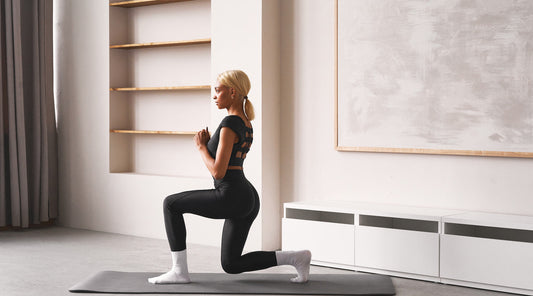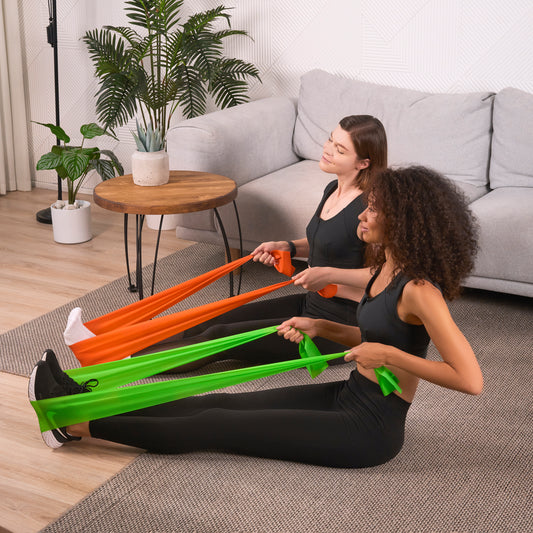Everyone occasionally has bad posture, but if you frequently find yourself slouched over, whether standing, sitting, or walking, you may do more harm than good. Poor posture can cause ailments, including well-known ones like spinal disorders and back discomfort.
One of the most crucial things worth considering in the frame of posture health and overall wellness is the effect of posture on digestion.
Maintaining proper posture enables your body and organs to function at their peak efficiency. When you slouch or hunch over, your stomach and intestines may become compressed, which can result in problems like bloating, constipation, and acid reflux. Conversely, standing or sitting up straight can help your gut, allowing your organs to function as they should.
Have you ever realized the importance and significance of proper posture for digestion? In particular, your posture greatly impacts how well your digestive system functions. Take care of your posture if you want to improve your digestive system's health!
The Connection Between Posture and Digestion
Understanding the connections between posture and digestion is crucial to preventing potential problems with gut health. To prevent stomach acid from rising and entering your mouth, your diaphragm moves food down your esophagus and into your gut.
However, eating while slouched puts a lot of strain on your diaphragm that is not used to it, and it stops functioning properly. Sitting up straight for digestion is a must for excellent health and well-being.

The position of the diaphragm (in pink) in your body. It is a large dome-shaped muscle that sits under your lungs and above your gut.
A combination of heartburn, acid reflux, and bloating may follow, none of which are particularly pleasant. Therefore, if you discover that taking medications after meals is necessary to avoid these undesirable issues, it could be time to examine your eating posture and become more aware of your posture and gut health.
Why Bad Posture Leads to Digestive Issues
Our posture and our digestive system are closely related. Intestinal gas propulsion is significantly influenced by body posture; transit is faster while standinalex than when lying down.
Furthermore, even with proper posture, sitting for extended periods compromises the microbiota in your stomach. It has been discovered that those who engage in frequent, intense exercise have a larger and more varied gut microbiota.
Here are some posture and digestion problems:
Pressure on Internal Organs and Its Effects
Maintaining bad posture, such as slouching or leaning forward, puts pressure on the abdomen. This pressure throws off the organs' natural alignment, especially in the digestive system. Bad postures causing digestive problems include the colon, intestines, and stomach constricting, which would delay the passage of food through the digestive system.
You might consequently suffer from conditions including heartburn, bloating, constipation, and indigestion. In addition to limiting digestive efficiency, poor posture can affect the diaphragm by limiting its capacity to inflate while breathing fully.
Slouching and Poor Bowel Function
Slouching disturbs the digestive system's natural alignment and puts pressure on the intestines. Constipation, bloating, and other pain may result from this pressure's slower passage of food and waste through the intestines.
Also, bad posture can impair the muscles in bowel motions, making it more difficult to empty the colon completely. Slouching over time might aggravate irregular bowel movements and persistent digestive problems.
An upright posture facilitates digestion and regular bowel movements by supporting appropriate organ alignment. One of the best decisions you can make regarding posture alignment is to wear a posture support bra as part of your daily routine.
How Prolonged Sitting Impacts Gut Health
Seated for extended periods, especially when slouched, puts pressure on the abdomen, which can hinder the passage of food and waste through the digestive system. Constipation, bloating, and discomfort could result.
Long periods of sitting also reduce the body's natural ability to move regularly, which is essential for maintaining healthy intestinal function and aiding in digestion. Regular activity and posture correction improve gut health and keep the digestive tract in good working order.
As you can see, bad posture and digestion are tightly connected, so you should pay extra attention to how you sit while you eat.
Benefits of Sitting Up Straight for Digestion
Sometimes, it is so hard to get up and move to the kitchen for a meal. The occasion of staying in bed in front of TV with the snacks seems so nice in today’s busy world. However, we recommend examining some digestive benefits of sitting up straight, as given below.
- Prevention of pressure on organs. The stomach and intestines are among the abdominal organs that can be compressed by slouching or straining. Slowing down digestion may result in discomfort.
- Improved digestive function. There are evident bowel benefits to sitting up straight. These positions make your organs more in line, which makes it easier for food to pass through your intestines and lowers your risk of problems like bloating, constipation, and acid reflux.
- Better nutrient absorption. Maintaining good posture helps your abdomen expand, improving how nutrients from your diet are absorbed.
Remind yourself that posture correction is a continuous process. You can strengthen your back and core muscles, and proper posture is supported routinely, including stretches and exercises that focus on these areas. An essential outfit item like a posture-supportive bra, Etalon, can be included.
How to Improve Your Posture for Better Digestion
Now that we know how posture impacts gut health, let's examine some ways to improve posture.
Simple Exercises for Posture Correction
-
Standing cat-cow. Place your hands on your knees, raise your chest to the heavens, and then round your spine by looking down at the earth.
- Chest opener. Gently press your chest forward while holding your hands behind your back.
- Child's pose. To stretch your spine, rest on your hands and knees, put your hands out in front of you, and bring your bottom toward your feet.
- Forward fold. Take a lofty stance and stoop to touch your toes.
- Glute bridge. While lying on your back, bend your knees by bringing your feet comfortably close to your bottom. To straighten your spine, slowly raise your hips and lower them once more.
- Isometric pulls. Stand or sit with your arms parallel to the floor in front of you. Pinch your shoulder blades together and open your chest by returning your elbows.
- Side plank. Turn sideways and transfer weight to one arm while in the high plank posture.
Ergonomic Adjustments for Sitting and Standing
Sitting
- Ensure your knees are 90 degrees from the floor and your feet are flat.
- Supporting the lower back with a cushion or a chair with lumbar support will help you maintain an upright posture.
- Maintain a 90-degree angle with your arms while typing by keeping your workstation at elbow height.
- Avoid slouching or straining your neck by placing your monitor at eye level.
Standing
- Proper foot placement involves keeping your knees from locking and keeping your feet hip-width apart.
- Use a soft mat to ease the strain on your legs and feet from prolonged standing.
- Maintain a straight posture by keeping your head aligned with your spine and avoiding forward tilting or sagging.
By implementing these adjustments, the body experiences less stress enhances digestion, and helps maintain better posture.
The Role of Core Strength in Supporting Good Posture
Core strength stabilizes the spine and pelvis, making it essential for maintaining proper posture. A strong core aids in maintaining normal alignment and avoiding slouching or excessive back curvature. Engaging the core muscles, which include the pelvis, back muscles, and abdominals, helps maintain a neutral posture, support the upper body, and lessen strain on the spine.
In addition to preventing pain and discomfort, this posture facilitates digestion by lessening the strain on internal organs. Strengthening your core with workouts like planks, bridges, and abdominal work may greatly enhance your posture and general body mechanics.
Conclusion
Poor posture may affect physical health and have a major effect on the digestive system, causing bloating and hyperacidity.
You can enhance your digestive health and comfort by paying attention to your posture and making minor changes to your everyday routine. Remember that maintaining proper posture is one easy yet powerful strategy to promote general health.
FAQs
How does posture influence bowel movements?
What are the common digestive issues caused by poor posture?
Does working at a desk all day negatively affect digestion?
Can posture correction fix chronic digestive issues?
Trending
Try Etalon posture improvement products








